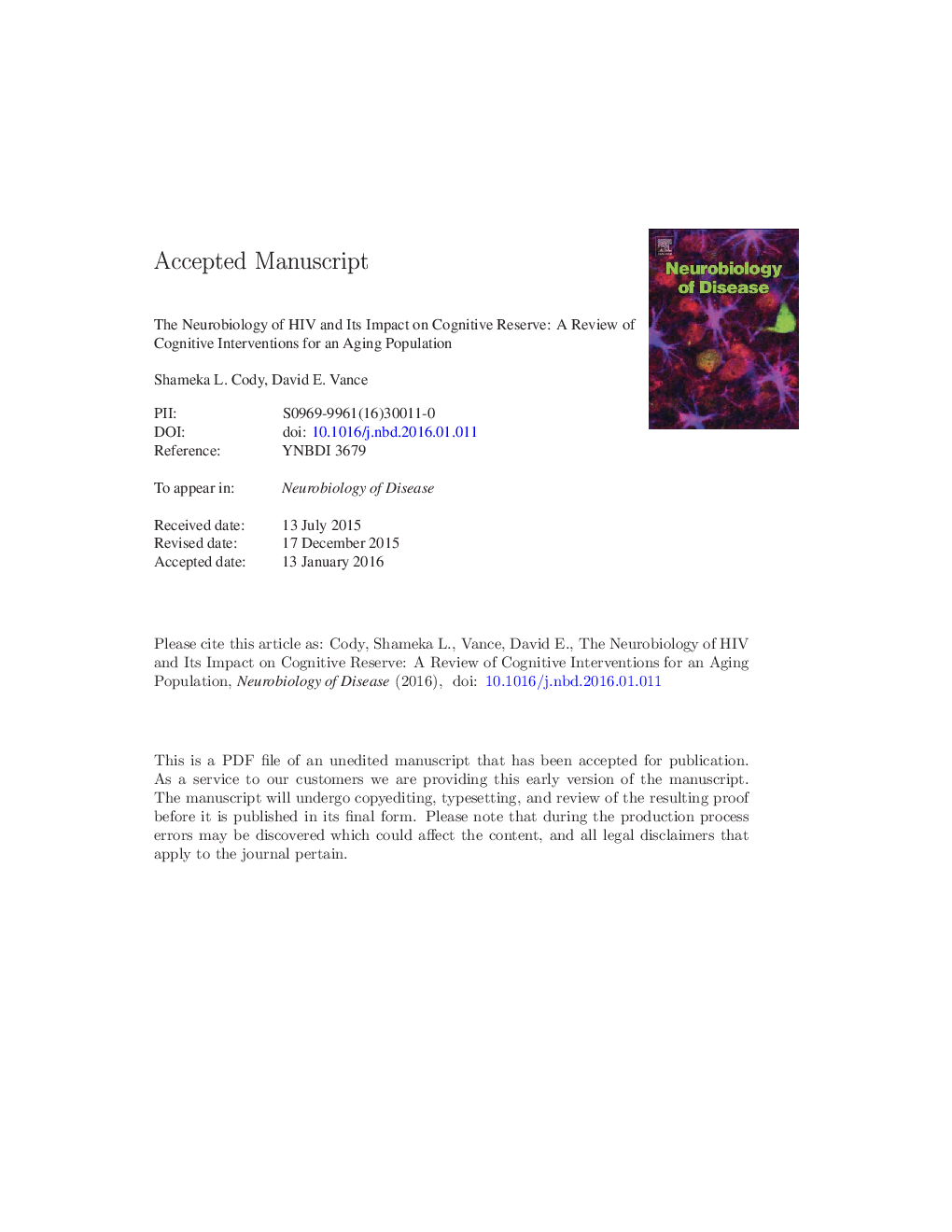| Article ID | Journal | Published Year | Pages | File Type |
|---|---|---|---|---|
| 6021349 | Neurobiology of Disease | 2016 | 47 Pages |
Abstract
The medications used to treat HIV have reduced the severity of cognitive deficits; yet, nearly half of adults with HIV still exhibit some degree of cognitive deficits, referred to as HIV-associated neurocognitive disorder or HAND. These cognitive deficits interfere with everyday functioning such as emotional regulation, medication adherence, instrumental activities of daily living, and even driving a vehicle. As adults are expected to live a normal lifespan, the process of aging in this clinical population may exacerbate such cognitive deficits. Therefore, it is important to understand the neurobiological mechanisms of HIV on cognitive reserve and develop interventions that are either neuroprotective or compensate for such cognitive deficits. Within the context of cognitive reserve, this article delivers a state of the science perspective on the causes of HAND and provides possible interventions for addressing such cognitive deficits. Suggestions for future research are also provided.
Keywords
N-methyl-d-aspartateNIAJohn Cunningham virusNIHIADLCARTANIMNINMDAtDCSSRIPMLCDCBDNFcognitive impairmentmild cognitive impairmentHIV-associated neurocognitive disorderCognitive remediationstandard deviationAIDSHIV/AIDSTranscranial direct current stimulationHADcombination antiretroviral therapyHandCNSHIV-associated dementiaBBBblood brain barrierSpeed of processingcentral nervous systembrain derived neurotrophic factorInstrumental Activities of Daily LivingProgressive multifocal leukoencephalopathyNIH, National Institutes of HealthCerebrospinal fluidCSFMethamphetaminesMETHCenters for Disease Control and Preventionserotonin reuptake inhibitorsNational Institute on AgingHPAMCIhypothalamus–pituitary–adrenalacquired immunodeficiency virus
Related Topics
Life Sciences
Neuroscience
Neurology
Authors
Shameka L. Cody, David E. Vance,
